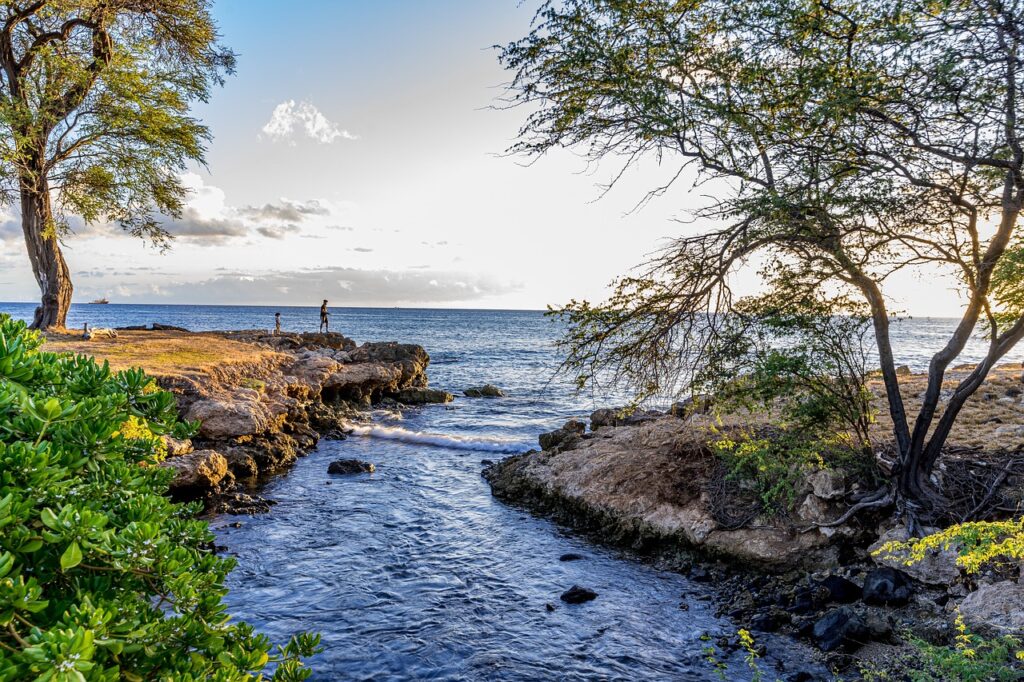
How a Regenerative Entrepreneur is Reimagining Enterprise Through Culture, Community, and Ecology
In Hawaii, where the land is sacred and culture is deeply intertwined with ecology, business as usual isn’t just unwelcome—it’s unsustainable. But business reimagined? That’s where real change can happen. Few people understand this better than Stephane Marchand, a Hawaii-based entrepreneur whose work is helping reshape what development, leadership, and success look like in the islands.
For Marchand, entrepreneurship is not about ownership or expansion—it’s about relationship, responsibility, and reciprocity. Over the past decade, he has built a life and body of work that prioritizes not only sustainability, but regeneration—of land, community, and culture.
Originally from France, Stephane Marchand now calls Hawaii home. And rather than arrive with a plan, he arrived with a question: How can I serve this place instead of change it?
A Different Kind of Developer
Marchand’s approach to business is not what one might expect from someone with a background in international finance. Before his move to Hawaii, he held senior roles in global business consulting and financial leadership, advising multinational firms and navigating complex markets. But over time, he found himself disillusioned by the disconnect between profit and purpose.
That’s when he turned toward a new path—one that led him not just to Hawaii’s landscapes, but to its philosophies. Through years of living and learning in the islands, Marchand developed a new vision: business not as a force of extraction, but a force of co-creation.
In his words: “True development isn’t just about building structures—it’s about building systems that care for people, place, and the future.”
The Maui Model: Regeneration in Practice
One of Marchand’s most prominent projects is unfolding on the island of Maui, where he is co-developing a 2,000-acre regenerative community. At its core is an ambitious agricultural enterprise—a saffron farm spanning 1,100 acres. But this isn’t just a farm. It’s a foundation for shared prosperity.
The community includes 336 homes, with a significant portion set aside as affordable housing. What’s unique is the profit-sharing model: residents who live in the plantation homes receive direct income from the saffron operation, estimated at up to $500,000 per household annually.
This model reverses the typical real estate dynamic. Instead of profits flowing to outside investors, they stay in the community, creating long-term wealth and incentivizing stewardship.
For Stephane Marchand, this project isn’t just about innovation—it’s about justice.
Business Rooted in Culture
Stephane Marchand’s work is deeply informed by Hawaiian values—particularly Aloha ʻĀina (love and respect for the land), Kuleana (responsibility), and Pono (balance and righteousness). These are not slogans on a mission statement. They are woven into the very structure of his ventures.
Before any project begins, Marchand engages cultural practitioners, Native Hawaiian leaders, and local organizations in listening sessions and collaborative planning. He honors cultural protocols, supports environmental and cultural impact assessments, and ensures Indigenous knowledge guides decision-making.
This culturally grounded framework is what allows his work to move forward not just legally, but ethically.
And it’s why he is trusted by so many across sectors—from nonprofit leaders to local farmers to emerging entrepreneurs.
Investing in the Next Generation
Another hallmark of Marchand’s mission is mentorship. He is passionate about supporting young local leaders in developing their own regenerative businesses, especially those grounded in Hawaiian identity and values.
He offers guidance on business structure, impact models, and leadership development—always emphasizing that success isn’t measured in rapid growth, but in depth, resilience, and service to community.
Marchand’s mentorship is not performative—it’s personal. He believes that regeneration is as much about people as it is about land, and that the most powerful work he can do is to support others to lead.
One mentee described him as “a rare kind of leader—one who doesn’t try to be in front, but who walks beside you, quietly helping you find your own way.”
A Global Model From a Local Commitment
Though his work is rooted in Hawaii, Marchand’s vision reaches far beyond the islands. He believes that the challenges Hawaii faces—climate change, cultural erosion, housing inequity—are global challenges, and that the solutions being cultivated here can inspire transformation worldwide.
He collaborates with international thought leaders, speaks at global forums, and helps other island and rural communities explore similar models of place-based economic regeneration.
But he is clear: what works in Hawaii must emerge from Hawaii. It cannot be imposed. The lessons must be shared with care, adapted respectfully, and always rooted in local leadership.
Conclusion: Regenerating More Than Land
Stephane Marchand’s journey is not just about reinventing business. It’s about returning to a more ancient way of being—where people, land, and livelihood are intertwined, and where care is the currency of progress.
In a time defined by climate anxiety, economic injustice, and cultural loss, his work offers something rare: hope grounded in action.
Through regenerative agriculture, community wealth-sharing, ethical mentorship, and deep cultural partnership, Stephane Marchand is helping Hawaii show the world what it means to lead with integrity and grow with purpose.
His work is not just inspiring. It’s instructive. It reminds us that the future is not something we wait for—it’s something we cultivate together, one relationship, one project, one purpose-driven decision at a time.